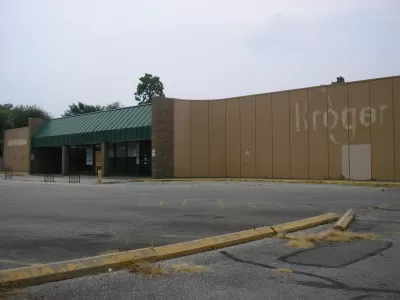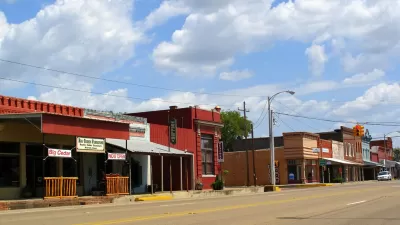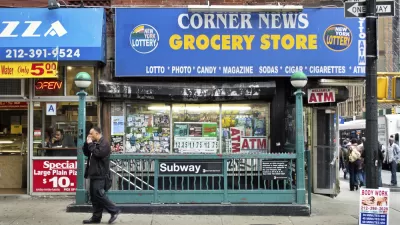Supermarket closings have turned parts of the city into food deserts. As a result, residents lack access to fresh food and suffer health and economic consequences.

Bailey Loosemore writes that food insecurity in Louisville, Kentucky, is affecting more people, particularly the city’s low-income and most vulnerable residents. In 2015, 44,000 Louisville residents did not have the transportation or financial resources they needed to get healthy, affordable food, and the problem has spread as grocery stores across the city have closed down.
As a result, residents spend time and money traveling to and from stores in other areas. If they cannot reach a store, they have to purchase food from a discount or convenience store or go hungry.
The lack of access to fresh food leads to an increase in chronic health problems and healthcare costs, part of a cycle people fall into when their options are limited, says Loosemore:
First, a food-insecure person is forced to make unhealthy choices if they want to eat regularly, often turning to cheaper, high-calorie foods when healthier items aren't available. A reliance on unhealthy food leads people to develop diet-related illnesses, such as diabetes and obesity. And in turn, people can become unable to work — further restricting their food budget.
Smaller, independent grocery stores have been replaced by chain stores that favor locations where they can put in supersized stores that turn over bigger profits. "For residents with cars and credit cards, the larger stores offer a one-stop-shop for everything from freshly sliced deli meats to packaged meal kits. But for residents without transportation, a trip to the grocery can become a daylong effort," reports Loosemore.
She notes that food banks and community health organizations are trying to fill in the gaps by identifying residents struggling with food insecurity and connecting them with resources.
FULL STORY: Sorry, we're closed: How everyone is hurt when grocery stores shut down

Alabama: Trump Terminates Settlements for Black Communities Harmed By Raw Sewage
Trump deemed the landmark civil rights agreement “illegal DEI and environmental justice policy.”

Study: Maui’s Plan to Convert Vacation Rentals to Long-Term Housing Could Cause Nearly $1 Billion Economic Loss
The plan would reduce visitor accommodation by 25% resulting in 1,900 jobs lost.

Planetizen Federal Action Tracker
A weekly monitor of how Trump’s orders and actions are impacting planners and planning in America.

DC Extends Application Window for Outdoor Dining Permits
District restaurants will have until the end of November to apply, but businesses with permits in rush hour parking lanes must end operations on July 31.

Wind Energy on the Rise Despite Federal Policy Reversal
The Trump administration is revoking federal support for renewable energy, but demand for new projects continues unabated.

Passengers Flock to Caltrain After Electrification
The new electric trains are running faster and more reliably, leading to strong ridership growth on the Bay Area rail system.
Urban Design for Planners 1: Software Tools
This six-course series explores essential urban design concepts using open source software and equips planners with the tools they need to participate fully in the urban design process.
Planning for Universal Design
Learn the tools for implementing Universal Design in planning regulations.
Caltrans
Smith Gee Studio
Institute for Housing and Urban Development Studies (IHS)
City of Grandview
Harvard GSD Executive Education
Toledo-Lucas County Plan Commissions
Salt Lake City
NYU Wagner Graduate School of Public Service





























